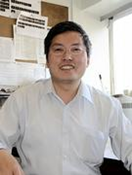Speaker:Dr Jie Zhang
Time:Friday, July 19th,16:00
Venue:Conference Center 2nd floor lecture hall
Abstract:
In the last two decades Software Sensors, often referred to as Soft Sensors, have established themselves as a valuable addition, sometimes alternative, to traditional means for the acquisition of critical process variables for process monitoring, process control and process optimisation. This talk presents integrating slow feature analysis (SFA) with neural networks (SFA-NN) for soft sensor development. Dynamic linear SFA is applied to the easy to measure process variable data. Then the dominant slow features are selected as the inputs of a neural network to predict the difficult to measure product quality variables. SFA can capture underlying dynamics of industrial processes through the extraction of slowly varying latent variables, known as slow features. Selection of dominant slow features using scree plot is proposed. Neural networks are utilised to cope with nonlinearities present in many real industrial processes. The effectiveness of the proposed method is evaluated on three real industrial processes and is compared with slow feature regression, partial least square regression, traditional feedforward neural networks, and using principal component analysis prior to a neural network. The proposed SFA-NN gives the best generalisation performance among these techniques in both case studies.
 Biography:
Biography:
Dr Jie Zhang received his PhD in Control Engineering from City University, London, in 1991. He has been with the School of Engineering, Newcastle University, UK, since 1991 and is Reader in Process Systems Engineering. His research interests are in the general areas of process system engineering including process modelling, batch process control, process monitoring, and computational intelligence. He has published over 400 papers in international journals, books, and conference proceedings. He has supervised over 30 PhD students and over 100 master students to completion. He is a senior member of IEEE. He is on the Editorial Boards of a number of journals including Neurocomputing, Network: Computation in Neural Systems, Processes, and PLOS ONE.
